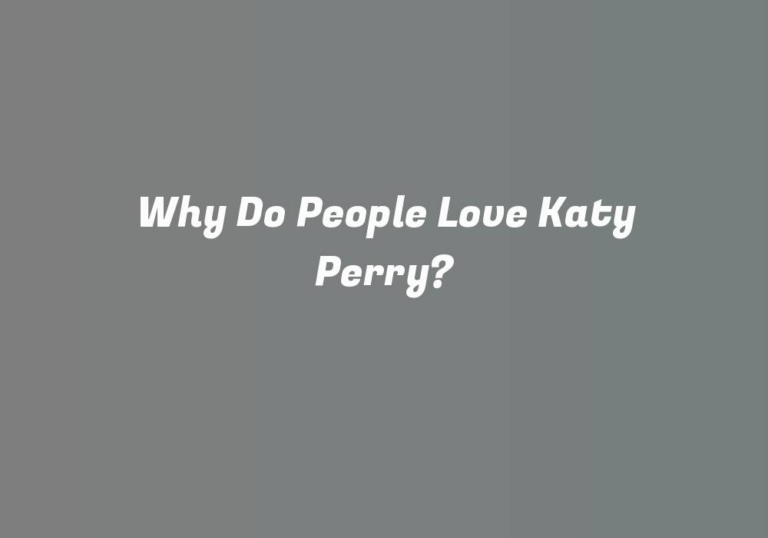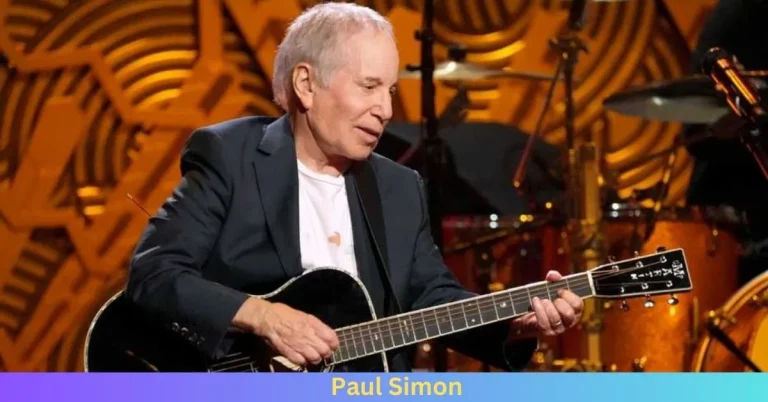Why Do People Love Lana Del Rey?
Lana Del Rey is one of the most popular and influential artists to emerge in the last decade. Since releasing her debut album Born to Die in 2012, she has developed a devoted fanbase drawn to her cinematic retro sound and vulnerable songwriting.
But what is it exactly about Del Rey that resonates so deeply with listeners? Here’s an in-depth look at some of the key reasons people love her music.
Her Vintage Aesthetic
One of the most distinctive aspects of Lana Del Rey is her commitment to 1960s and 70s Americana aesthetic, both sonically and visually.
Her music is deeply influenced by artists like The Beach Boys and Nancy Sinatra, awash with nostalgic instrumentation like lush strings, tremolo guitars and sweeping orchestral arrangements. Tracks like ‘Young and Beautiful’ and ‘Love’ exemplify her orchestral pop style built on Baroque pop foundations.
Visually, her style evokes classic Americana motifs like surf, bikers, beat poets and Hollywood glamour. In photo shoots and music videos she frequently sports floral headresses, mesh tops and retro swimsuits, zeroing in on the lush visual landscape of 60s and 70s pop culture.
This finely tuned retro image, both aural and visual, conjures a sense of romanticism that provides an escape for fans while also distinguishing her from contemporary pop trends.
Her Cinematic World Building
Lana Del Rey carefully crafts the world of each album through narrative themes and highly cinematic lyrics that provide fans an immersive experience.
For example, her major label debut Born to Die centered on a tragic ingenue character caught up in dangerous relationships with bad boys. Meanwhile, her follow up Ultraviolence honed in on a grittier sound depicting the bleak, lethargic feelings of youthful reckless abandon.
She also draws inspiration from classic American literature, film and music, name-dropping figures like Jim Morrison, Lolita, Elvis Presley, and the Eagles to help flesh out the universe of each record.
This commitment to narrative world building and cinematic lyricism allows listeners to vividly inhabit the musical universes she creates album after album.
Her Raw Emotionality
While many pop stars shy away from difficult emotions in favor of uplifting or aspirational sentiments, Lana Del Rey fearlessly dives into life’s darker corners, crafting melancholy melodies and lyrics exploring loneliness, emptiness, heartbreak and insecurity.
Tracks like ‘Sad Girl’ and ‘Dark Paradise’ lean into feelings of sadness and despair, while cuts like ‘Fucked My Way Up To the Top’ flip the script on misogynistic attitudes about female ambition.
Meanwhile, songs like ‘Cruel World’ lay bare her insecurities and anxieties with remarkable frankness. This raw emotionality makes her music resonate for fans going through similar struggles.
While her candor is often misinterpreted as promotion of danger or unhappiness, Lana stresses that exploring these feelings through music is not a glorification but rather a reflection of the complexities of being human. This emotional authenticity is a big part of her appeal.
Her Poetic Songwriting
As a lyricist, Lana Del Rey writes poetic, sophisticated pop music ripe for analysis, which enables fans to find new meaning with each listen.
She makes ample use of rich lyrical devices, weaving in allegories, metaphors, affecting rhyme schemes and other lyrical flourishes. On cuts like ‘Ride’ she evokes pathos through alliteration, repeating line endings to create momentum and utililizing unexpected rhymes to dazzle the listener.
This lends her music a literary quality that stands in stark contrast to more straightforward contemporary pop lyrics. For fans looking for lyrical depth, Lana provides a wealth of material to unpack.
Her Ability To Reinvent Herself
While her core aesthetic remains retro-inspired, each Lana Del Rey album introduces a new shade or perspective, showing artistic growth that keeps fans excited.
For instance, 2017’s Lust for Life saw Lana shift to themes of hope and optimism with more hip-hop and trap inspired production. Meanwhile, her 2019 album Norman Fucking Rockwell doubled down on her classic rock and folk leanings for a timeless, singer-songwriter feel.
Most recently, 2021’s Chemtrails Over the Country Club found Lana exploring more acoustic, pastoral textures influenced by folk music. This willingness to evolve and reinvent herself album to album without abandoning her essence marks the hallmark of a true artist.
Her Unapologetic Nature
Lana Del Rey has endured more than her share of misplaced criticisms and accusations, from gatekeeping attitudes about her authenticity to misunderstandings of her artistic intent.
But through it all she has refused to compromise her vision or shy away from controversy. She makes the music she wants to make, aesthetically and sonically.
Rather than bend to public opinion, she stays true to her own passions and interests. This uncompromising attitude has earned her the respect of many fans tired of derivative, inauthentic pop stars made by committee.
Lana sticks to her guns creatively and that singular artistic vision continues to resonate and inspire her fanbase.
Her Sultry, Characteristic Voice
Lastly, Lana Del Rey possesses a singular, immediately recognizable voice that fans can’t get enough of.
Her breathy, sultry singing employs careful phrasing with smokey, vintage inflections that flutter delicately over her cinematic arrangements. Drawing inspiration from jazz chanteuses like Billie Holiday, her voice glides effortlessly between husky low notes and angelic high notes.
Markers like her frequent sing-speak melodic approach on tracks like ‘Carmen’ and ‘Diet Mountain Dew’ have become signature Lana stylistic traits grounded in her dynamic vocal control. This distinctive vocal presence cements her status as a true original.
Why Her Music Resonates Across Demographics
Lana Del Rey has managed to cultivate a broad, diverse fanbase drawn from many different demographics. Here’s a closer look at some of the types of listeners her music deeply resonates with:
Young People
Many teenagers and young adults find Lana’s music highly relatable, as she eloquently captures the swirling emotions and insecurities that define coming-of-age. Millenials in particular see their struggles reflected in her lyrics.
Tracks like ‘Young and Beautiful’ and ‘This Is What Makes Us Girls’ perfectly encapsulate youthful romanticism and the fleeting feeling that everything is possible before life’s realities set in. For this reason, Lana serves as a poignant musical narrator for young people navigating the world.
Romantics
Given her dreamy retro sound and cinematic lyrics, it’s no surprise Lana Del Rey strongly resonates with romantics who long for escapism.
Her allusions to classic Americana motifs conjure nostalgia for supposedly simpler times, allowing listeners to daydream about idyllic American landscapes dotted with sailors, bikers, beatniks and old Hollywood glamour. Songs like ‘Terrence Loves You’ feel positively transportive, ideal for hopless romantics.
Poetry Lovers
Fans of poetry and literary lyricism are naturally drawn to Lana for the sophistication of her writing and lyrical precision. She expertly employs literary devices across her catalogue, with songs often structured as vignettes with intricate rhyme schemes.
Tracks like ‘Ride’, ‘Art Deco’ and ‘National Anthem’ overflow with lyrical flourishes weaving together rich imagery and unpredictable rhymes. For this reason, bibliophiles flock to her.
Cinephiles
Given how cinematic Lana’s musical worlds feel, it makes sense cinema lovers would be enthralled with her commitment to highly visual, vivid songcrafting.
Particularly tracks like ‘Off to the Races’ and ‘Born to Die’ play out like mini films, immersing listeners in a melodramatic dreamscape inspired by the golden age of Hollywood. The scope and lyricism of her writing makes her songs feel like miniature movies for music and film lovers alike.
Outcasts & Nonconformists
Lana has also rightfully earned a devoted LGBTQ+ fanbase, in addition to resonating with many social outcasts and nonconformists who see their own struggles reflected in her emotionally vulnerable lyrics.
Rather than force positivity, Lana acknowledges life’s challenges, anxieties and insecurities head-on in her music. This comforts fans feeling isolated or depressed and looking for an understanding artistic voice.
Overall her defiance of norms, raw candor and individuality resonate with many who feel like outsiders. She gives them inspiration to live authentically and not compromise their passions.
Key Examples of Her Broad Appeal
To understand just how universally Lana Del Rey’s music resonates, it’s helpful to look at some key examples:
Diverse Age Range of Fans
Lana’s fanbase spans a notably wide age bracket, from young teens up through listeners in their 60s and beyond. Both older fans nostalgic for retro Americana and younger fans relating to her emotional authenticity find deeper meaning in her work.
Sold Out Arena Tours
Despite the melancholy slant of much of her music, Lana has managed to achieve pop star levels of commercial success, selling out arenas on her tour behind Norman Fucking Rockwell in 2019.
Strong Streaming Numbers
On streaming platforms like Spotify, Lana sees impressive monthly listener numbers nearing 30 million, along with individual tracks boasting hundreds of millions of streams, showing her music’s powerful resonance.
Coachella Headlining Set
Lana’s crowning as a Coachella headliner in 2023 cements her status as a globally beloved pop culture force, capable of commanding massive festival crowds.
Top 10 Billboard Debuts
All of Lana’s major studio albums have landed in the Top 10 on the Billboard 200, with multiple entries reaching #1. This commercial visibility reflects her widespread appeal.
Overall these achievements demonstrate how universally her music connects, making her one of the defining artists of the 21st century pop landscape.
Why Lana Del Rey Still Has Critics
However, despite her astronomical success and devoted fanbase, Lana Del Rey continues to attract a vocal contingent of critics questioning her credibility and impact. Some of the key criticisms and controversies she still faces include:
Accusations of Inauthenticity
Some skeptics accuse Lana of crafting an artificial, inauthentic persona, claiming there’s a wide divide between her real self Elizabeth Grant and her retro lounge singer stage character. However, Lana insists this retro aesthetic genuinely reflects her true passions.
Arguments Her Music Promotes Unhealthy Relationships
Due to her lyrics’ fixation on dangerous love affairs and unhealthy power dynamics, Lana has faced accusations that her music glorifies toxicity and false notions of romance. Lana rebuts this, saying she’s just reflecting realities people face.
Charges of Cultural Appropriation
Some critics claim Lana appropriates aesthetic elements from communities of color, like hip-hop culture and Chicano style. However, she explains she’s simply inspired by cross-cultural pollination within the American musical melting pot.
Claims She Romanticizes the Past
Some argue Lana peddles a false nostalgia for the past masking the oppressive realities facing marginalized groups at the time. She maintains she focuses on isolated romantic aspects of retro culture rather than the period as a whole.
Perceptions She’s Anti-Feminist
Based on lyrical depictions of passive, dependent women, certain critics paint Lana as an anti-feminist advocating female submission. But Lana stresses her music explores complex power dynamics rather than endorsing any single outlook.
While these controversies contribute to lingering skepticism from some, Lana Del Rey’s unique artistry continues to inspire devotion from millions undaunted by her critics.
Conclusion
In conclusion, Lana Del Rey has emerged as one of the most singular and significant artists of her generation because she taps into the collective desire for escapism, nostalgia and poetic lyricism with rare authenticity and introspective candor.
Her meticulously crafted cinematic soundscapes allow fans across generations and backgrounds to immerse themselves in the tumultuous emotional terrain of her musical worlds. By fearlessly embracing life’s complexity rather than facile positivity, her lyrics resonate with alienated outsiders looking for understanding.
Moving forward, Lana’s unmatched aesthetic vision, uncompromising artistic integrity and unrelenting passion position her as an icon who will continue inspiring fellow nonconformists and hopeless romantics for decades to come. Her catalog invites endless revisitation as her genius reveals itself more with each deep listen.
Frequently Asked Questions about Lana Del Rey’s Appeal
Here are answers to some common questions about why Lana Del Rey’s music connects so strongly with listeners:
What specific eras does her retro style draw from?
Primarily the 1960s and 1970s. Her music, visuals and fashion echo Americana motifs like surf rock, Laurel Canyon folk, jazz, Motown, classic Hollywood and vintage biker cultures.
Which other artists are main inspirations behind her cinematic sound?
Key influences include Nancy Sinatra, Joni Mitchell, The Beach Boys, Bob Dylan, Serge Gainsbourg, Britpop acts like The Verve and James Bond soundtrack composers like John Barry.
What are some of her most poetic, literary songs?
Standouts include ‘Ride,’ ‘The Blackest Day,’ ‘Religion,’ ‘Old Money,’ ‘Hope Is A Dangerous Thing,’ ‘Violet Bent Backwards Over the Grass’ and ‘Wildflower Wildfire.’
Why does she appeal to marginalized communities?
Her openness in addressing insecurities and mental health resonates with LGBTQ+ fans and others who feel like outcasts. She empowers them to live authentically.
What Hollywood films or eras inform her cinematic lyricism?
She draws heavily on American New Wave films like Bonnie and Clyde, Valley of the Dolls, Sunset Boulevard, foreign arthouse cinema and classic noir traditions.
How has she evolved sonically over her career?
While her core aesthetic remains retro-inspired, she’s explored baroque pop, psych rock, folk, Americana, trap beats and Laurel Canyon vibes across different albums.
Lana Del Rey clearly strikes a chord with people across backgrounds who long for poetry, vulnerability and transportive escapism in their music. Her singular retro-tinged vision has cemented her status as a generational pop icon.




